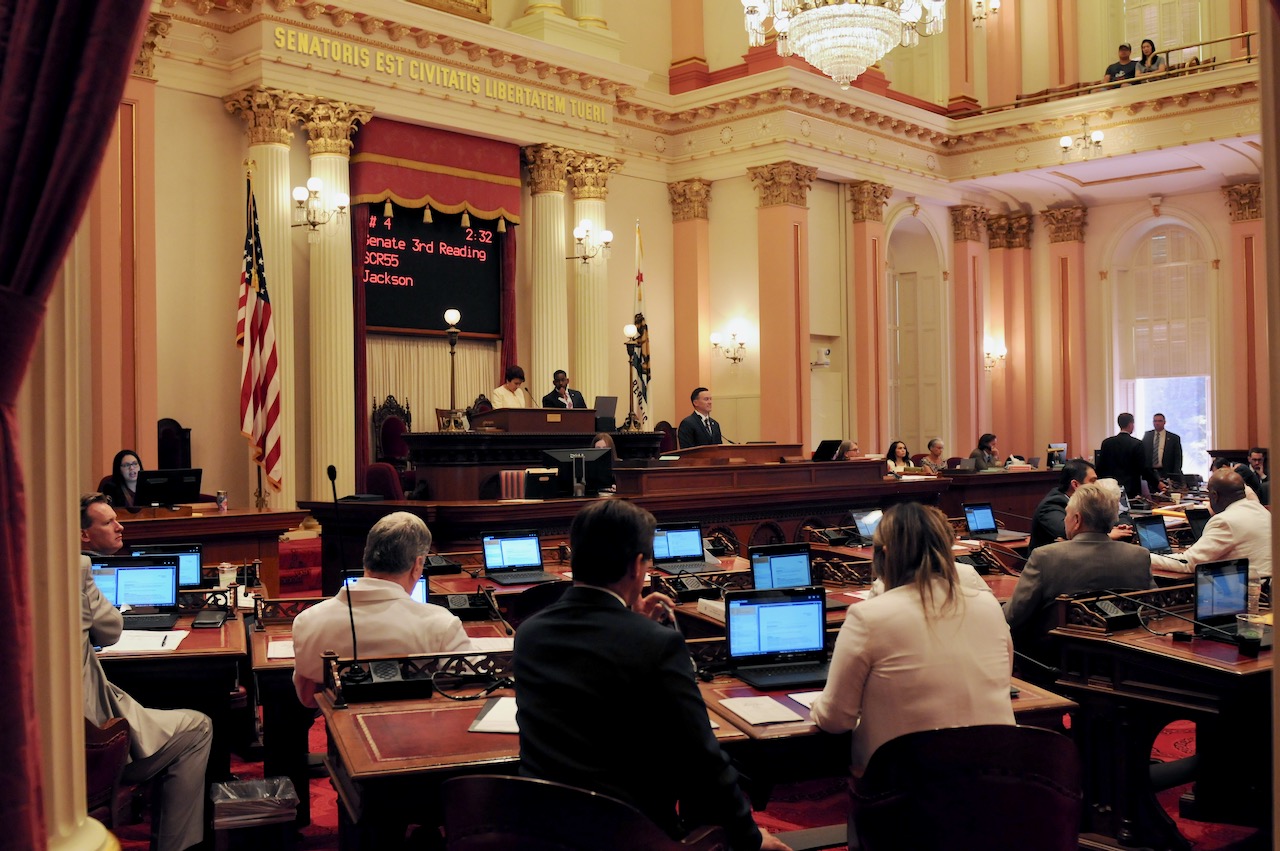
Cal Chamber 2019 Job Killers list
Cal Chamber Annual Job Killers List Down to 5 Bills
Bad bills identified as harming California’s economic growth and job creation
By Katy Grimes, June 3, 2019 2:03 am
The annual Job Killer list by the California Chamber of Commerce grew this year to 31 bills in 2019. The Job Killers are identified as harming California’s economic growth and job creation should they become law. That list is now down to just five, according to Chris Micheli, lobbyist, lawyer, and weekly contributor at California Globe.
The five bills are as follows, according to the Cal Chamber:
AB 51 (Gonzalez; D-San Diego) Ban on Arbitration Agreements — Significantly expands employment litigation and increases costs for employers and employees by banning arbitration agreements made as a condition of employment, which is likely preempted under the Federal Arbitration Act and will only delay the resolution of claims. Banning such agreements benefits the trial attorneys, not the employer or employee.
Last year, the identical bill (AB 3080) was vetoed by Governor Brown. In his veto message, Governor Brown stated: “[T]his bill plainly violates federal law.” (emphasis added). Governor Brown explained as follows: “This bill prohibits an applicant for employment or employee from being required to waive his or her right to a judicial forum as a condition of employment or continued employment. In my veto message of a similar bill in 2015, I referred to recent court decisions that invalidated state policies which unduly impeded arbitration. I also wanted to see how future United States Supreme Court decisions developed before endorsing a broad ban on mandatory arbitration agreements.
AB 1066 (Gonzalez; D-San Diego) Unemployment During Trade Disputes — Would significantly increase costs on employers engaged in a trade dispute by allowing employees on strike to receive unemployment benefits if the strike lasts more than two weeks, incentivizing strikes and transforming unemployment insurance into a political tool in trade disputes.
AB 1066 will provide unemployment benefits to striking workers even though they are not looking for work and have a job waiting for them once the labor dispute is resolved.
Opponents contend that providing unemployment benefits to striking workers will undermine the solvency of the unemployment insurance fund and that the threat of increased UI costs will render employers unable to negotiate with unions.
AB 1080 (Gonzalez; D-San Diego) Unprecedented Product Regulation In California — Would substantially increase the cost to manufacture and ship consumer products sold in California by providing CalRecycle with broad authority to develop and impose costly new mandates and fees on manufacturers of all packaging and single-use consumer products under an unrealistic compliance time frame.
China and Indonesia are the top sources of plastic bottles, bags and other rubbish clogging up global sea lanes, and account for more than a third of plastic detritus in global waters, California Globe recently reported.
SB 1 (Atkins; D-San Diego) Unprecedented Delegation of Legislative Authority and Increased Litigation — Creates significant uncertainty and litigation risks to regulated entities by giving certain state agencies unfettered authority to adopt rules and regulations without any of the Administrative Procedure Act safeguards when the agency, in its discretion, determines that the federal rules and regulations in effect on January 19, 2017 are more “stringent” than existing federal law. It also increases the potential for costly litigation by creating private rights of action under California law or when a state agency takes the foregoing discretionary action.
SB 1 shifts unprecedented power from the Legislature to the Executive Branch,” improperly empowers state agencies with limited Legislative oversight, threatens to undermine wetland regulation efforts currently being pursued by the State Water Resources Control Board, as well as operation of the Central Valley Water Project, and will inevitably result in unnecessary litigation against state agencies and regulated entities.
SB 54 (Allen; D-Santa Monica) Unprecedented Product Regulation In California. (Same language as AB 1080) — Would substantially increase the cost to manufacture and ship consumer products sold in California by providing CalRecycle with broad authority to develop and impose costly new mandates and fees on manufacturers of all packaging and single-use consumer products under an unrealistic compliance time frame.
China and Indonesia are the top sources of plastic bottles, bags and other rubbish clogging up global sea lanes, and account for more than a third of plastic detritus in global waters, The Globe recently reported.
- Trump Responds, Issues Global 10% Tariff on all Countries - February 21, 2026
- What is Trump’s Plan B After Supreme Court Strikes Down Tariffs? - February 20, 2026
- New BLS Data Shows Union Membership Drives Falling Flat - February 19, 2026





Problem here is too many people, packed in to major cities, who ruin everything they touch.
Why not AB5, which confirms changes to the definitions of “employee” and “independent contarctor” in a way which clearly kills off (or requires huge changes to) the new gig econbomy, i.e. Uber, Lyft, etc.